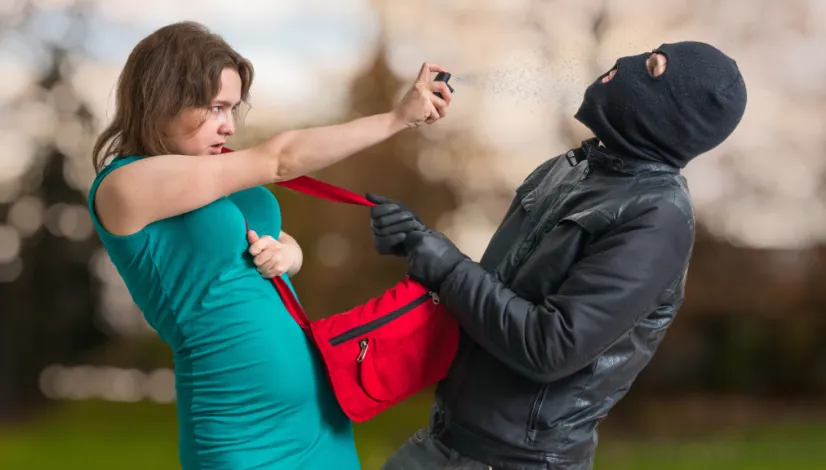
In today’s world, protecting yourself in a dangerous world is on everyone’s mind, not just in Dallas, Texas. If your safety is at risk, the right to self-defense is crucial. Understanding self-defense laws in Texas is essential for residents of Dallas and the surrounding communities to protect themselves while staying within the bounds of the law. In this blog, we will delve into the key aspects of self-defense laws in Texas and how they apply to defending yourself legally
Understanding Self-Defense Laws in Texas
Texas law recognizes the right of an individual to use force, including deadly force, in certain circumstances to protect themselves, their property, and others. The state follows a version of the “Stand Your Ground” principle. In Texas, if you (1) have the right to be present at the location where the force is used, (2) did not provoke the person against whom force is used, and (3) are not engaged in criminal activity at the time force is used, then you do not have to retreat before using force in self defense. Texas’s “Stand Your Ground” principle applies to both non-deadly and deadly force used in self-defense.
The so called “Castle Doctrine” is another critical aspect of self-defense laws in Texas. It allows a person to use force, including deadly force, to defend their occupied home, vehicle, and or place of business or employment by using force. Under the law of self-defense, however, the person’s belief that force is justified must still be reasonable. The “Castle Doctrine” presumes a person defending their occupied home, vehicle, or place of business or employment acted reasonably (as long as they don’t provoke the person they used force against and weren’t otherwise engaged in criminal activity).
Furthermore, Texas’s self-defense laws encompass the defense of others, not just oneself. Defense of a third person is a two-part test. (1) Under the circumstances as you reasonably believe them to be, you would be justified to use force or deadly force against someone else’s unlawful force or deadly force threatening the third person you’re seeking to protect; and (2) you reasonably believe your intervention is immediately necessary to protect the third person.
It is crucial, however, to note that these rights are not absolute. The use of force must meet specific criteria for it to be considered legally justified.
Requirements for Justified Self-Defense
- Imminent Threat: In Texas, a person can use force, including deadly force, if they reasonably believe force was immediately necessary to protect against the other’s unlawful use of force.
- Reasonable Belief: Your belief that self-defense is necessary must be reasonable. The jury decides whether, standing in your shoes and based on what you were experiencing in the moment, they believe your beliefs and actions were reasonable.
- No Duty to Retreat: As mentioned earlier, Texas does not require individuals to retreat from a threat if they are lawfully present in a location, not provoking the other person, and not engaged in criminal activity. Under these circumstances, they can stand their ground and defend themselves.
- Proportionality: The level of force used in self-defense should be proportional to the threat faced. Deadly force can only be used if facing serious bodily injury or death, or to prevent the other person’s commission of aggravated kidnapping, murder, sexual assault, aggravated sexual assault, robbery, or aggravated robbery.
The Role of a Criminal Defense Attorney
In cases where self-defense is asserted, the defense must raise some evidence that the accused person acted in self-defense. The burden of proof then falls on the government to establish that the accused did not act in self-defense. This can be a complex legal process, and having the guidance of an experienced criminal defense attorney is crucial.
A skilled attorney can help gather evidence, interview witnesses, and present a compelling defense to demonstrate that their client acted in accordance with Texas self-defense laws. They will strive to establish that the defendant reasonably believed their life or safety was at risk – while making sure that the burden of proof lays squarely on the government to disprove self-defense.
Self-defense is a fundamental right that Texans possess. However, it is crucial to understand the specific self-defense laws in Texas and the criteria that must be met for the defense to be legally justified. Remember, the use of force must be reasonable and proportional to the threat faced.
A seasoned criminal defense lawyer understands the significance of discussing your case to develop a successful defense strategy. There are situations where relying on self-defense might not be the most effective approach. For instance, if the defendant used force to resist arrest or in response to verbal provocation alone, self-defense may not be applicable under the law.
If you find yourself in a situation where you had to defend yourself, seeking counsel from a knowledgeable criminal defense attorney can make a significant difference in your case. Having a skilled advocate by your side can help ensure your rights are protected and that you can defend yourself legally and effectively within the bounds of Texas law.
Learn more about how our law office can help and meet with someone from our team today.
View All Blogs




